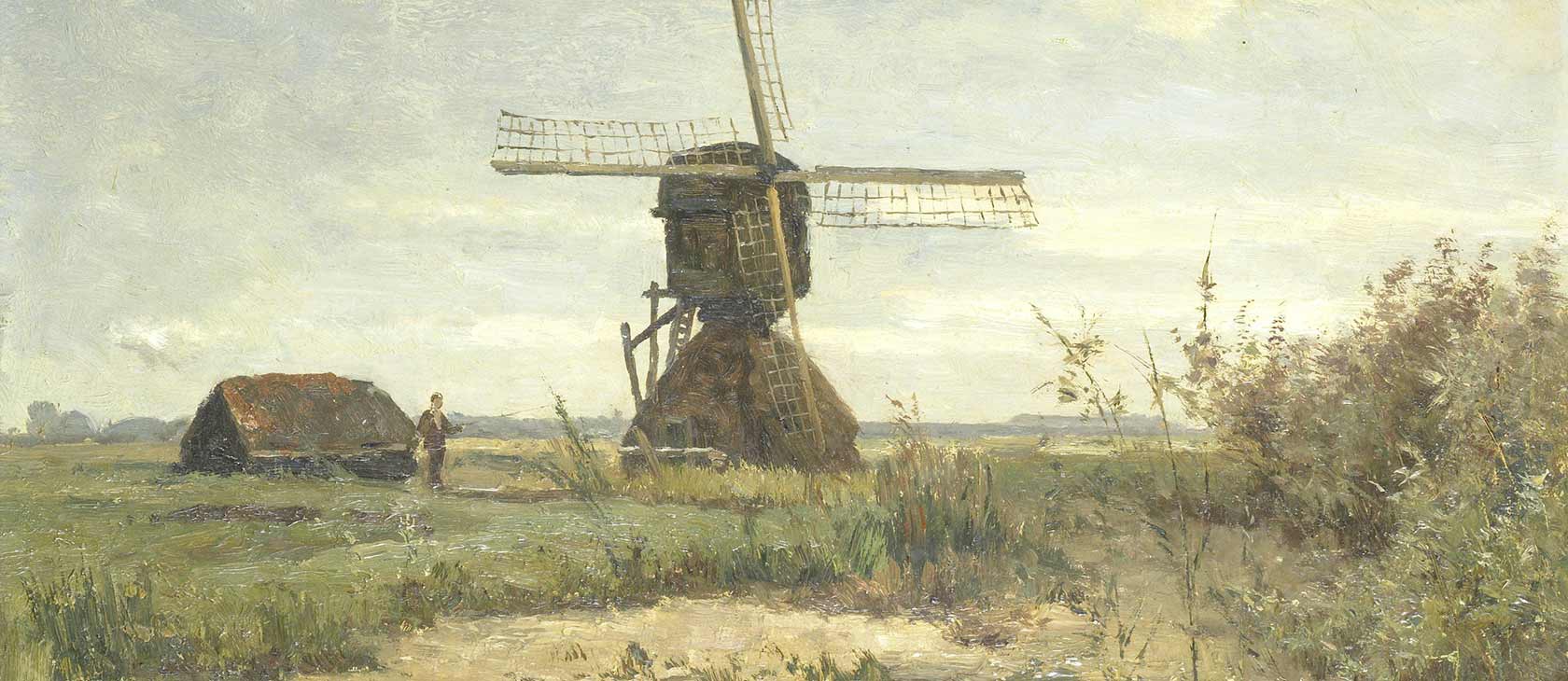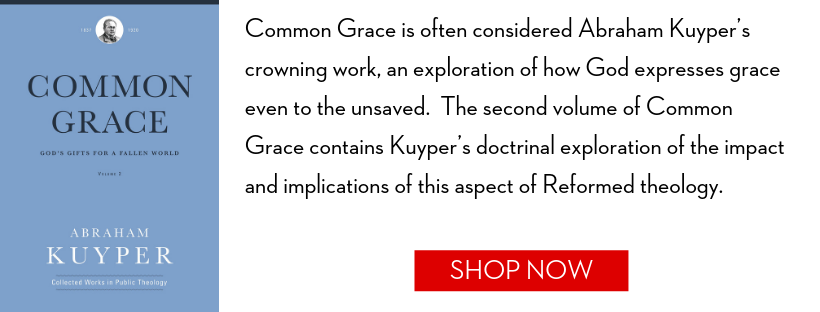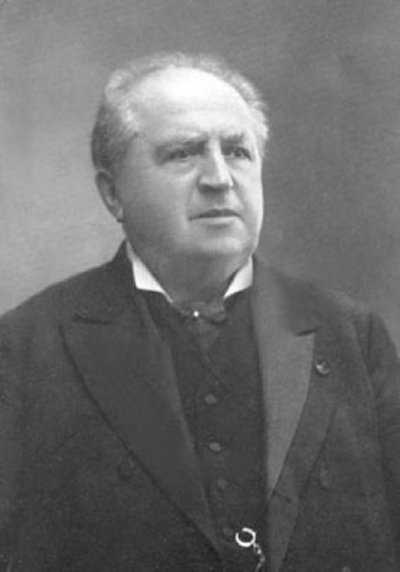Common grace issues from God, and from God come all the means that we humans must apply to oppose sin and its consequences in curse and misery. But it is God himself who leads us to find the means and instructs us how to use them. And it is precisely the latter that is forgotten. The human inventor of the electric light and electric motor is extolled, but God, who led Edison to discover it, is passed over. This severs the connection between what we might call our higher and our lower life. This is exactly why Scripture again and again emphasizes that the beginning of all learning—the starting point for all of our knowing and our abilities—lies in the acknowledgment of God as the source of common grace, or, as it is put succinctly, in “the fear of the Lord” [Prov 9:10].
For this reason the proverb says, “They that seek the Lord understand all things.” This, of course, does not mean that a godly man does not have to apply himself to studying; quite the opposite is true: the one who has God as the starting point has the best prospects of succeeding in study. Praying well is half our duty. It is essentially an ungodly predisposition to be hostile toward learning and knowledge. We are not referring here to the question of wrong speculations or theories of unbelief; we are only confining ourselves to the issue of what enriches human learning or expands human knowledge and thus increases our power vis-à-vis nature. In the end, we may simply conclude that knowledge and learning are nothing but discovering and learning the mystery of the means of common grace that God has ordained and appointed for us.
Praying well is half our duty.
Everything in this regard simply depends on the correct insight into the manner in which it pleases God to bring about that “appointing” and that “putting into service” of the means of common grace. There are two possible ways of achieving this. For example, I can give a child a math problem along with its solution, or I can provide only the math problem, so that the child must find the solution for himself. God did the former, so to speak, with Noah, when Noah had to build the ark. The latter occurred when the profession of shipbuilding eventually sought and found the rules for building a seaworthy vessel. Or, to express it in more general terms, every means of common grace and its use could either be revealed directly to us by God or be indirectly discovered by us. Both were conceivable. In paradise Adam found everything prepared and ready, and also in the kingdom of glory everything will be handed to us prepared and ready. This is clearly expressed in the new Jerusalem, which will not be built by us but will descend “out of heaven” fully prepared [Rev 21:2]. Similarly, at the marriage supper of the Lamb everything will be “prepared” and “made ready.”
Indeed, even in our condition of sin’s misery, examples are not lacking of divine provision through various means. In the wilderness, Israel lived for forty years as though from God’s hand. God sent Israel the manna. He did not allow their clothes to deteriorate. God directed them to the spring from which they should drink. Wasn’t Elijah fed by the ravens without any effort on his part? After all, this mode of existence is commonplace in the world of plants and animals. “Consider the lilies of the field, how they grow: they neither toil nor spin, yet I tell you, even Solomon in all his glory was not arrayed like one of these” [Matt 6:28–29]. God possesses power, and where he deems it necessary, he uses this power. In fact, without food God kept his Servant alive in the wilderness for many days.
But God withdrew the norm of paradise after the fall, and in its place came another norm: “You will have your bread, but only by the sweat of your face” [see Gen 3:19]. In paradise everything was ready, whereas on the cursed earth nothing is. In life after the fall, everything needed to stave off death and distress had to be discovered or invented and employed by human beings themselves; this would occur under steady exertion, with much effort, by pondering and reflecting and then working. In this connection we pointed earlier to Isaiah 28, which speaks of agriculture. For agriculture as well, all kinds of things had to be invented: the manner of preparing the soil, the choice of seed, irrigation, weeding, the time for harvesting, the manner of threshing, and so much more. Has the farmer discovered this himself, or did God teach him? The answer must be that he discovered these things himself, yet only because his God instructed him. Isaiah states quite clearly: “For he is rightly instructed; his God teaches him” (Isa 28:26). But how? Did the first farmer receive a manual? Did God send him an angel to demonstrate everything? Did God give him an oral revelation? None of these things. God gave him the soil, a head to think with, hands to work with, and (besides these) a basic hunger. God stimulated him by means of this drive. God taught him to think about things. And thus he had to try things. First one thing, and when that did not work, something else, until finally one person found this and the other that, with the results confirming that this was the right solution. Subsequently, the one imitated the other, and it was passed on from father to son, and in this way agriculture expanded.
Through endless types of experiments God has taught us all that we now know
In fact, in this manner God has gradually taught us successively over the centuries how to cultivate the land. It therefore is thoroughly wrong when we imagine that nothing remains to be learned about such an occupation. God’s instruction continues ceaselessly, and throughout the centuries he uncovers for us new forces, new means, new ways of doing things; the same applies to agriculture. Everything from the chemical elements in the soil to those in the air is related. We can learn to understand that connection only through working with the soil. But gradually that knowledge becomes refined. All newly acquired knowledge then has its application in agriculture and in the preparation of agricultural products, in order to make the soil produce more, to simplify the work, and to better prepare the particular crop. And in all this, the common grace of God is at work, which increases our power over nature, gives us a more bountiful and better harvest, and makes us enjoy the fruits of the earth in even greater ways. And even though it is a fact that pseudo-intellectual presumption sometimes proposes things that simply do not hold up, it is equally the case that those who are opposed to increased knowledge or better insight go counter to God. Through endless types of experiments God has taught us all that we now know, and through all kinds of experiments our knowledge continues to be enriched.
Those who are fundamentally opposed to this incur their “punishment” automatically in the fact that someone else will outstrip them and pass them by. And when this twisted way of thinking takes root in an entire people group or society, the simple consequence is that those of other nations will outdo us. In the sixteenth century, Dutch farmers really were the teachers of Europe. We were the most advanced, and our products garnered the highest prices. And if and when something of the spirit of our forefathers once again awakens among us, it will also necessarily manifest itself also in this way, that we allow ourselves to be instructed in more and better ways by our God—not only in the Heidelberg Catechism but also in the catechism of agriculture, in the catechism of industry, and in the catechism of commerce. For it is obvious that everything we have said about farming on the basis of Isaiah 28 is just as applicable to all the rest of human endeavor.
This excerpt has been adapted from Common Grace, volume 2, part of the Abraham Kuyper Collected Works in Public Theology.





